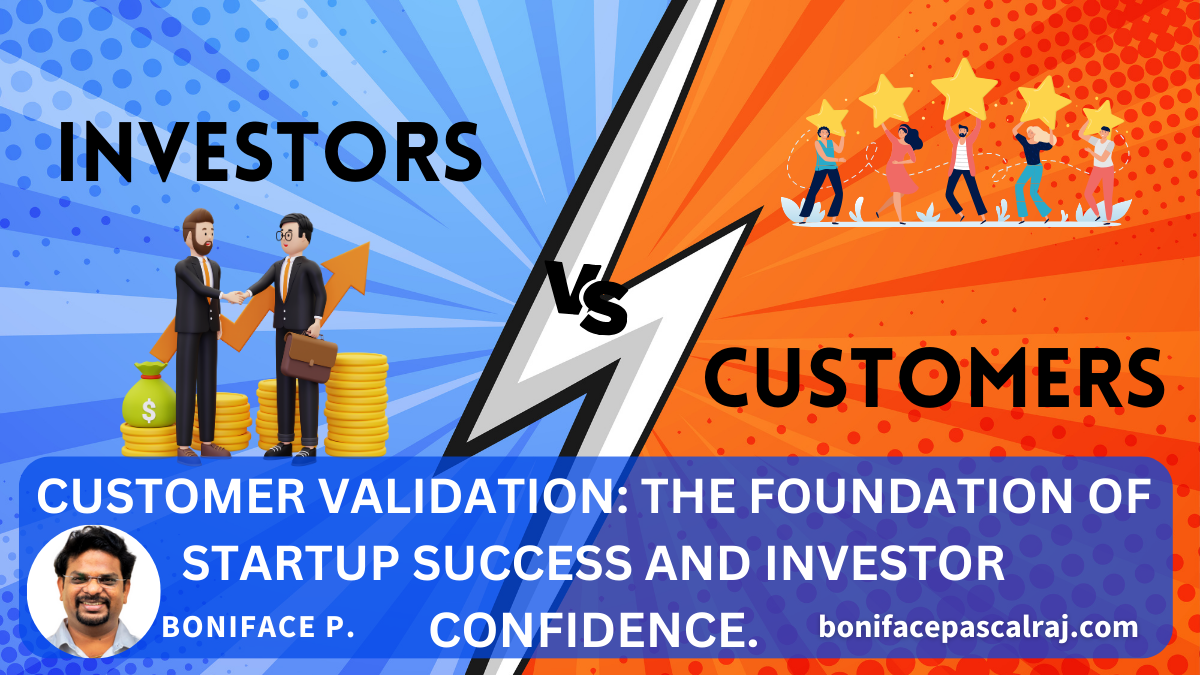In 2010, during the early days of my entrepreneurial journey, I found myself contemplating raising funds from investors. Back then, terms like “angel investment” and “venture capital” were still unfamiliar, and the startup ecosystem was nowhere near as developed as it is today.
It was during a conversation with Sanjay Sanyol that I received a piece of advice that remains relevant even after 15 years:
“Chase customers, and investors will chase you.”
This simple yet profound insight shifted my perspective entirely. Instead of focusing on attracting investors, I learned to focus on attracting customers. This approach, I discovered, holds immense value for both startups and investors alike.
The Value of Customer Validation
Customer validation is a crucial indicator of a startup’s potential. Chandran, our Principal Advisor at SSN iFound, who is also an experienced angel investor, often highlights the importance of having market validation. His advice has always been consistent—focus on solving a real problem, gain traction in the market, and let customers validate your product.
Similarly, during a recent interaction, Panneerselvam, CEO of MeitY Startup Hub, reinforced this philosophy. He stressed how connecting with customers and generating revenue creates a real impact for startups.
Why Investors Value Customer Traction
From an investor’s perspective, customer traction represents:
- Market Validation: It proves there is demand for the product and reduces the perceived risk of investment.
- Insight into Market Potential: Customer behavior offers clues about how the product might scale and how the market responds.
Startups with paying customers become far more attractive to investors because they bring real data and market insights to the table, not just ideas and projections.
The Startup’s Advantage: Confidence and Bargaining Power
For startups, having customers means:
- Confidence: Knowing your product is gaining market acceptance is a huge morale boost.
- Better Projections: With real data from actual customers, it’s easier to forecast revenue and growth.
- Stronger Negotiation Power: During fundraising, customer traction puts startups in a stronger position to negotiate higher valuations and minimize equity dilution.
When you have customers, you’re no longer raising funds to prove the concept—you’re raising funds to scale what’s already working. That shift changes the entire dynamic of the fundraising process.
A Lesson That Stays with Me
Looking back, I’m deeply grateful to Sanjay Sanyol for his early guidance. My heartfelt thanks also go to Chandran for continually emphasizing market validation and to Panneerselvam for reinforcing the importance of customer connections in building impactful startups.
For every entrepreneur reading this, my advice is simple: Focus on customers first. If your product solves a real problem and gains market traction, the funding will follow.



